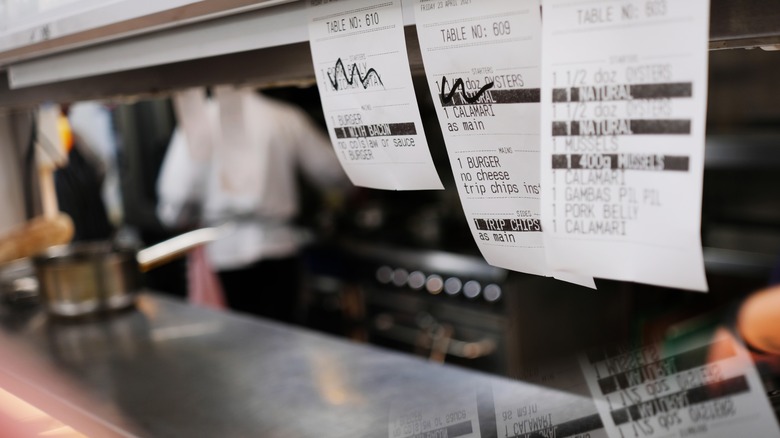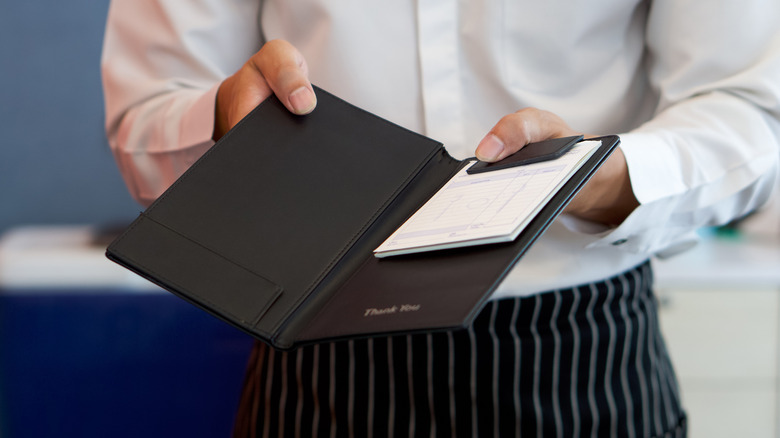Your Restaurant Check May Soon Include An 'Inflation Fee'
Are you sick and tired of hearing about inflation? Of course you are. The issue has dominated the news for well over a year, and it doesn't seem like that will change anytime soon. Americans are being forced to make major changes to their spending habits, and by proxy, their overall lifestyle, whether that means driving less to save on gas or swapping their favorite products for generic brands at the grocery store.
Given its vital nature, the food industry has likely had the most direct impact on each of our lives, and it has been hit particularly hard by inflation. The USDA found that food prices rose 10.1% between January 2022 and January 2023. Now, another big change could be coming. It's already happened at a number of restaurants around the country and seems like the inevitable future for many more, so if you haven't seen it already, prepare to face a new charge when you get the check: an inflation fee.
How inflation affects restaurants
The restaurant industry was already suffering before the current inflation crisis. The COVID-19 pandemic had a devastating impact, forcing many restaurants to permanently close and leading others to lay off employees. This kicked off a labor shortage that has continued beyond the era of mass quarantines and social distancing, as many former employees of the leisure sector have moved on to jobs with better pay and benefits. Inflation, as well as the underlying supply chain issues that fuel it, has made things worse.
In 2022, a CNBC poll found that 53% of Americans were dining out less, reducing restaurant profits. At the same time, the cost of ingredients has risen dramatically. Things are particularly tough on breakfast restaurants, due to an egg shortage caused by the worst outbreak of bird flu in United States history, while the costs of other basics like dairy and flour have also risen. Cash-strapped restaurants inevitably pass the extra expense onto customers, and many of them are doing so by implementing an additional inflation fee for all purchases.
Customers feel conflicted about inflation fees
Inflation fees vary significantly, as they are determined by each individual restaurant. To give a small sampling, The Fly Trapp, a Detroit area breakfast spot, added a 4% surcharge while Che Fico, an upscale Italian eatery in San Francisco, implemented a 10% fee. Other restaurants have elected to add a flat-rate inflation fee, including the restaurant chain Macaroni Grill, which was sued by a woman in Hawaii for adding a $2 fee to her check. The class-action lawsuit, filed in October 2022, argued that the inflation fee was deceptively added to diners' bills without informing them first, distorting the perceived price of their food. Instead, the lawsuit argues that Macaroni Grill should simply have increased their menu prices to cover their costs, as other chains like Chipotle and McDonald's did.
There is a practical reason for restaurants to add a separate inflation surcharge rather than changing their menu prices. As we should all be aware, inflation is volatile, and our economic future is uncertain, even in the short term. If food prices continue to rise, restaurants may need to increase their inflation fees, and if prices drop, they may lower or eliminate them. If a restaurant responded to these fluctuations by changing its menu fees, it would have to repeatedly print new menus. That wouldn't be too much of an issue for major chains, especially when so many use electronic menu boards anyway, but for small businesses, every cent makes an impact.


